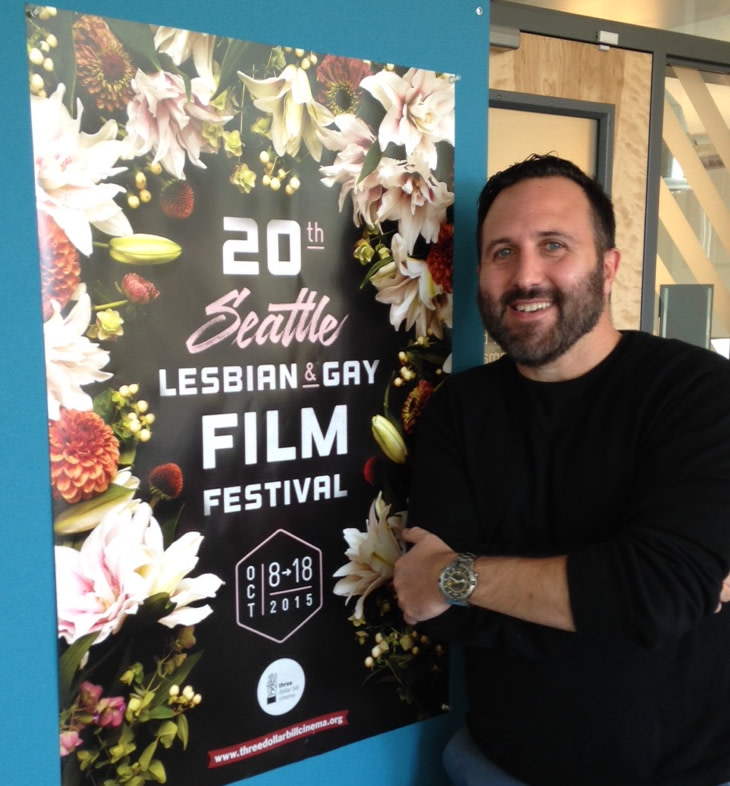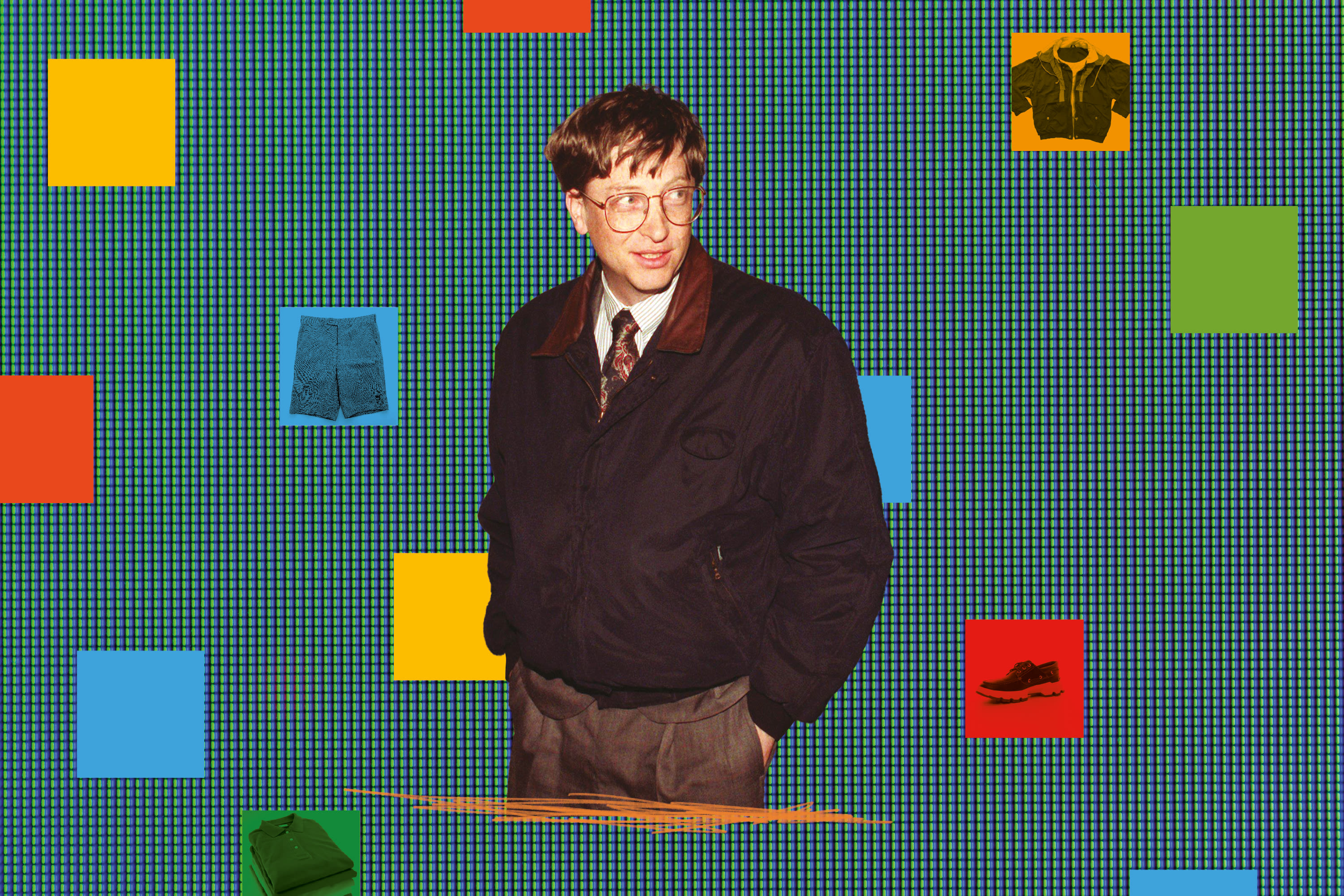A Fiendish Conversation with Seattle Lesbian and Gay Film Festival's Jason Plourde

Jason Plourde
It’s celebration time for Three Dollar Bill Cinema, as the nonprofit’s Seattle Lesbian and Gay Film Festival marks its 20th anniversary of providing an outlet for queer cinematic voices. Over that time the fest has grown substantially, and the organization's executive director Jason Plourde has been on hand in various roles for two decades to see it all happen. Under his guidance, this year's highlights include an Opening Night screening of Freeheld, a new drama about the battle for domestic partnership rights starring Ellen Page, Julianne Moore, Steve Carell, and the locally-made documentary about Seattle drag superstar Jinkx Monsoon, Drag Becomes Him. SLGFF opens this Thursday, October 8, and runs through October 18.
For our latest Fiendish Conversation, we talked to Plourde about the highlights of SLGFF's first 20 years, the themes of this year's programming, and playing a VHS on Cinerama's screen.
What aspects of this year’s Seattle Lesbian and Gay Film Festival are you most excited about?
I’m really looking forward to the Opening Night program. I think that we were really fortunate to be able to open with Freeheld. It’s a bigger film, it’s got a great cast of Hollywood stars, and I think it’s a relevant story to tell today. It’s a celebratory story about how important it is to be treated the same in the eyes of the law and how at least one battle for equal rights has been won. There was a short documentary that won an Academy Award called Freeheld based on these two women that lived in New Jersey, one of whom was a police detective who—when diagnosed with cancer—wasn’t allowed to give her benefits to her partner because they weren’t allowed to be legally married. So they battled the county board.
I’m also looking forward to a lot of the local films that are part of this year’s festival. It’s been really encouraging over the course of our organization’s 20-year history to see an LBGT film community grow. This year we have three feature length films that were locally made: Winning Dad by Arthur Allen, the documentary Drag Becomes Him about Jinkx Monsoon by Alex Berry, and then the second season of a web series by Wes Hurley called Capitol Hill 2. They’re all really unique, different pieces, and it’s incredible that they were all made locally.
You’ve been involved with SLGFF since the initial festival. How has your role changed over that time?
When I first moved to Seattle, it was just before the first festival happened. I’d run a LGBT film festival in Connecticut for a few years, so when I came out here I knew that they were putting a festival together. So I got involved as a general volunteer. The first festival I was doing ushering, setting up for events and breaking down, helping do promotions, and things like that. And then I was on the board and doing mostly outreach and recruitment, so it was a good way for me to connect with other organizations and get them involved with what we were doing. I eventually became involved in programming and then was the programming director for a little bit over a decade. And then about three years ago our former executive director left, and I became the executive director of the Three Dollar Bill Cinema. So I’ve done everything from taking tickets to membership to outreach to programming and now running the show.
How has the festival changed and evolved over those 20 years?
A lot has changed. The technology, first and foremost. That’s kind of a perfunctory thing to say, but when we first started 20 years ago most of the content was on film, and that had its own issues. You were working with limited prints and it was very heavy canvas film, but it was also expensive to make. So now, of course everything’s digital, which makes it more accessible to everybody. We used to have to coordinate with other festivals across the country [to plan] when we were going to show a film, because we were all sharing the same can of film. And the other thing that’s happened in conjunction with that is that production is become more accessible, and so a lot more people are able to tell stories. Folks that are unable to raise $100,000 to make a film can do so on a minimal budget, and it’s added to the diversity of stories that we show. I think initially we had a lot of repetition and sort of romantic comedies or coming out stories—we still have a lot of those, they are important stories to be told—but now we also have documentaries about a wide range of subject matter, we have a more experimental work, and we have a lot more genres being represented in the work we are able to show at the festival.
In the earlier years the primary focus of the festival was just getting our stories out there and shown cause you couldn’t see them anywhere else. And that clearly has changed. There’s a lot more access to things online and through a variety of platforms. So seeing lots of content isn’t necessarily the issue anymore, it’s curating it and bringing focus to important, well-made work. That’s our focus. We’re the gatekeepers in some way, and we take that responsibility seriously. We really want to show the best of what’s out there or bring unique stories so that people are seeing an interesting collection.
As you’ve put together this year’s lineup, have you noticed any themes emerging?
Yeah. Obviously because it’s a milestone anniversary for us, we were really excited to see that there’s a bunch films looking back, like documentaries that looked at LGBT history. There’s a film called Reel in the Closet which talks about home movies that have been uncovered and saved, so that we can kind of piece together the LGBT history that happened pre-Stonewall. There’s also a documentary [We Came to Sweat: The Legend of Starlite] on the Starlite, which is a historic African American gay club in New York City that has been struggling to stay open.
There’s also a lot of camp being played with at this year’s festival. There’s a retelling of Hush…Hush, Sweet Charlotte called Hush Up Sweet Charlotte done with a primarily drag queen cast. Dyke Hard is more of a midnight movie that plays with some campy ideas, but definitely has some edgier stuff in it. And of course there’s the Jinkx Monsoon documentary.
There’s also a darker side too. There seems to be a bunch of films that were featuring thriller elements. One with a dark sense of humor is called You’re Killing Me, which is as much a comedy as it is a little bit of a slasher film. Everlasting Love is another in that segment.
Do you have any moments that personally stick out as highlights of SLGFF’s first two decades?
One of the best things about having a film festival is that you get to meet the folks behind the films. That’s a unique experience, getting to talk to them about their process and ask questions about the film. I love that. One of the most exciting was Sarah Waters, the novelist who wrote Tipping the Velvet. We were able to get a world premiere of that film. And having her here and being able to do a Q&A with her before the film was kind of amazing. Oh, and we showed Shortbus. We had some the cast here. John Cameron Mitchell wasn’t here, but Jay Brannan and Peter Stickles and some of the other cast came. And that was a really fun screening because that was another highly anticipated film that we were able to show as our Opening Night. It was controversial, but it was also kind of a special night because people hadn’t seen anything like that before.
We’ve also had some snafus and those are also particularly memorable. One of which was not getting our Closing Night film one year because film print got delayed in customs. And so we had to show a VHS version of it on the Cinerama screen. And I knew what the film really was supposed to look like, but nobody else picked up on it, which was really remarkable. But I will not say what film that was, but it was definitely a film that we were a little nervous about showing. So there’re things like that, but we’ve always seemed to be able make a great backup plan when things go awry.
Seattle Lesbian and Gay Film Festival
Oct 8–18, Various venues, $5–$33; Festival pass $85–$225




